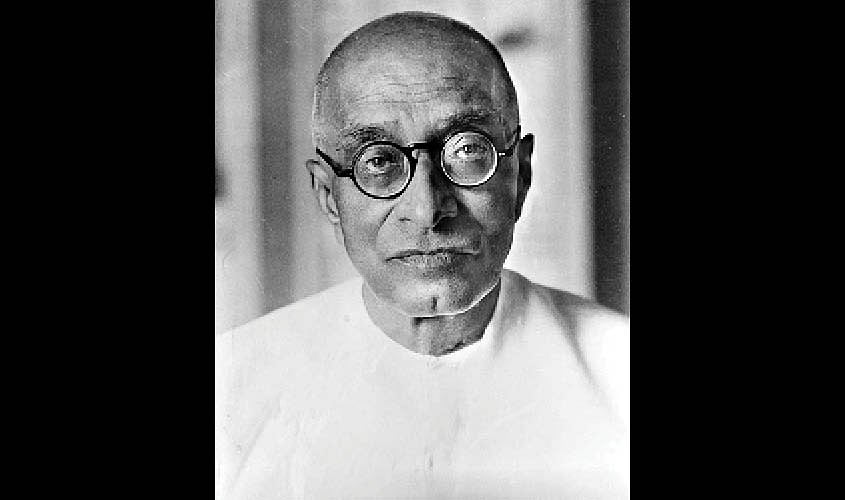
C. Rajagopalachari
Credit: X/@joybhattacharj
Rajaji and my father Navaratna Rama Rao shared a close and abiding friendship for over six decades till the end. Whenever Rajaji visited Bengaluru, he invariably stayed in our house, notwithstanding the protocol warranted by the official positions he occupied from time to time.
A pair of dark tinted glasses he wore owing to his eye condition was a matter of much speculation in the political circles then, attracting several interpretations, some of them even atrociously humorous.
According to some, he wore dark glasses because the ‘Southern Chanakya’ didn’t want anyone to make out who he was looking at and also to prevent his eyes from giving away his thoughts.
On one such visit to Bengaluru, in 1949, he was holding the exalted position of the Governor General of India. Despite stiff resistance from his security staff, he stuck to his decision to stay with us.
During the course of his three-day stay, many people from all walks of life were eager to meet him, and seek his guidance on personal and several other matters. Despite his enormous pressing engagements, Rajaji spared as much time as he could to interact with them.
It was at this juncture that a young lady in deep distress (daughter-in-law of a distant relative of ours) sought to meet him urgently, and Rajaji agreed. She narrated amid uncontrollable sobs, how she was being ill-treated, humiliated and tortured by her ‘unscrupulous’ mother-in-law.
“I’m shattered, I have no one to turn to, as my parents are no more. Even my husband, who has married me for love, supports his mother, and lets me down. He is a total Mamma’s boy,” she lamented.
“Rajaji Uncle,” she continued to plead with folded hands, “you are known to fight for the cause of the weak and oppressed. But for my only young son, I would have definitely resorted to something drastic. Please do something to put an end to these atrocities... Only you can help me.”
Rajaji slowly took off his dark glasses. He made no effort to hide his tears-filled eyes, reflecting his soft and compassionate interior. There was no trace of the tough politician in them. The grief of the young woman had melted the iron man.
“What a strange and tragic coincidence my dear child,” said Rajaji with a heavy voice. “Nearly two decades ago, your mother-in-law had come to me to this very house with an identical problem, and believe me, she had described her woes against her mother-in-law in exactly the same language and tenor as you’ve just done. I’d told her that when she got her daughter-in-law, she should treat her as her own daughter by forgiving her lapses. Obviously, nothing of the sort seems to have happened. Now, dear young lady, you say you have a son. When you get a daughter-in-law of your own, will you break this vicious chain, by making her find a mother in you?”
“Right now, excuse the lapses of your mother-in-law, as you would have of your own mother, and make her see a daughter in you. Do this for me, and I shall do the rest.”